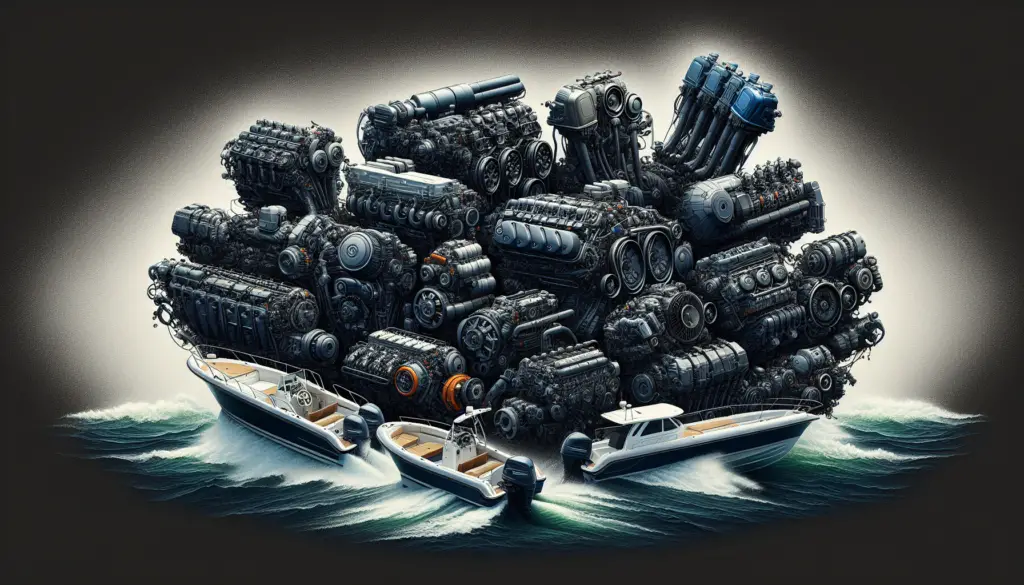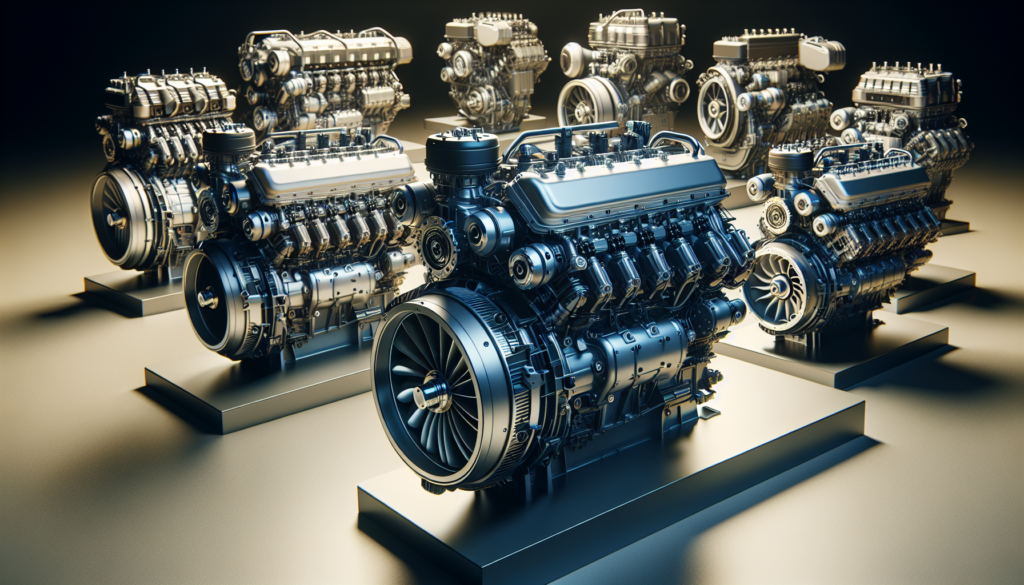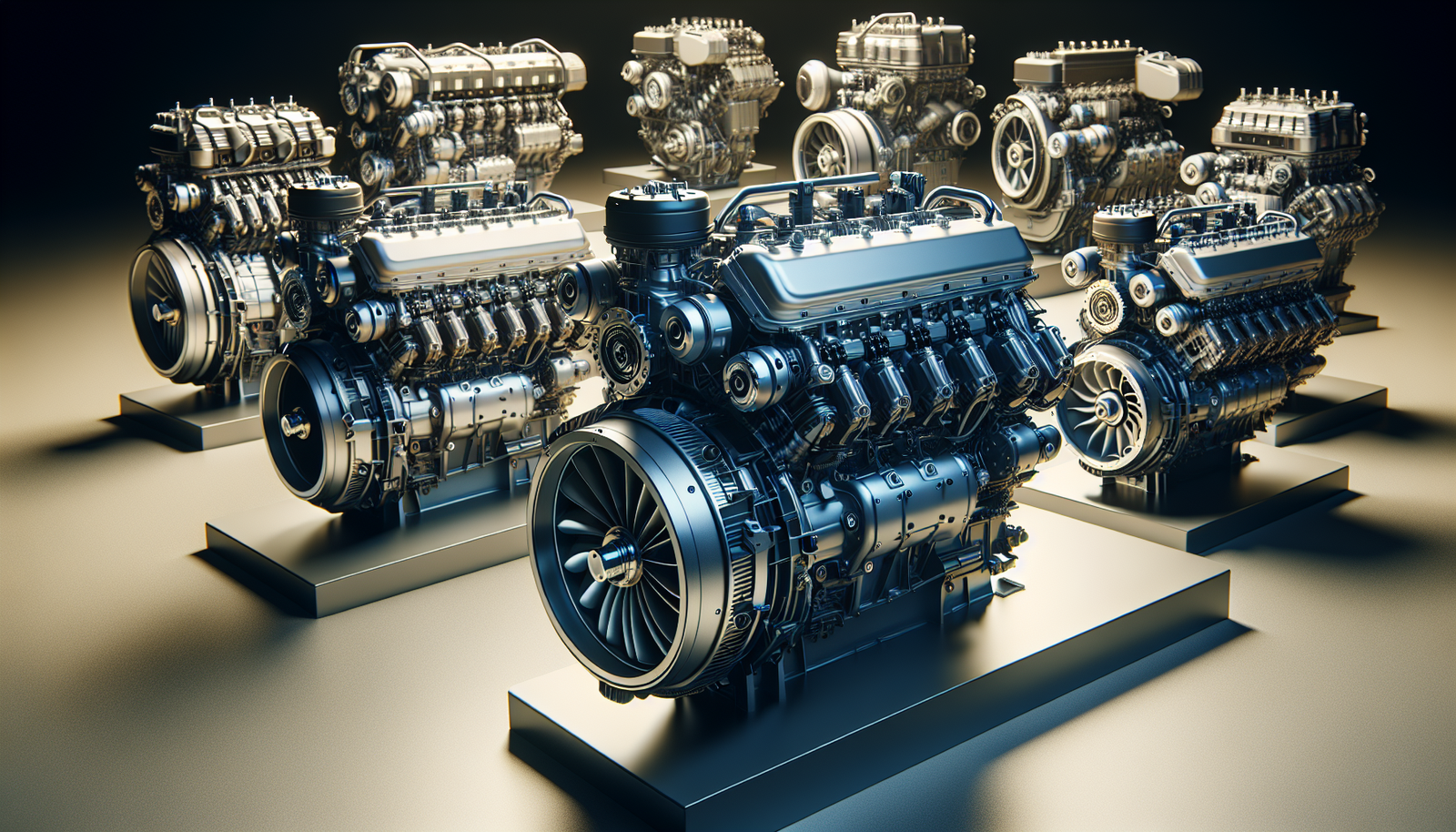Navigating the ocean of boat engines can be tricky, especially if you’re not familiar with the lingo and specifics. Fear not, as our comprehensive guide, “How To Choose The Best Boat Engine For Your Vessel”, is here to give you a smooth sail. It’s designed to equip you with the information and tips needed to find the perfect powerhouse for your sea cruiser. From understanding the different engine types to considering factors like horsepower, fuel efficiency, and noise level – this guide has got you covered.

Understanding the Basics of Boat Engines
When you’re looking to get the most out of your boating adventure, a key component to consider is the boat engine. Since the engine is essentially the heart of the boat, having a basic understanding of how it works and its part in your boat’s overall operation is essential.
Definition of a boat engine
A boat engine is a mechanical device that converts fuel into motion, propelling your boat forward or backward in the water. It’s the powerhouse that dictates your vessel’s speed, course, and overall performance.
Roles and functions of a boat engine
The essential role of any boat engine, big or small, is to generate the necessary power to drive the boat. It ensures a smooth and efficient journey by maintaining the correct propulsion and allowing for easy maneuverability. It’s not just about getting from point A to B, but also about ensuring comfort and safety while you’re out on the water.
General classifications of boat engines
Boat engines generally fall into three categories: outboard, inboard, and sterndrive. An outboard engine is a self-contained unit that includes an engine, gearbox, and propeller, which are attached to the outside of the boat. An inboard engine, on the other hand, is built into the boat, with only the drive shaft and propellers in the water. Lastly, sterndrive engines (often referred to as inboard/outboard engines) combine elements of both.
Factors to Consider when Choosing a Boat Engine
Choosing the right engine for your boat is critical, and there are a few key factors to consider to ensure you make the most informed decision.
Your boat type and size
The type and size of your boat will play a large role in determining which engine is right for you. For example, smaller vessels may benefit from the simplicity and ease of maintenance of an outboard engine, while larger yachts might require the sheer power and performance provided by an inboard engine.
Intended use of the boat
The purpose of your boat will also dramatically sway your engine decision. If you enjoy a peaceful fishing trip, low horsepower engines will suffice. However, if water sports and high-speed cruising are your thing, an engine with high horsepower should be your pick.
Budget constraints
An important consideration will always be your budget. Depending on your spending limit, this might narrow down your options. Outboard engines are generally less expensive compared to inboard and sterndrive engines, which are more complex and costly.
Fuel type preference
Boat engines typically run on either gasoline or diesel fuel. Gas engines are cheaper upfront but tend to consume more fuel, making them more expensive in the long run. Diesel engines usually have a higher initial cost but offer fuel efficiency, so they may end up being more cost-effective over time.
Maintenance and running cost considerations
Think about how much you’re willing and able to spend on maintenance. Generally, inboard engines require more care and thus have higher maintenance costs. In contrast, outboards are known for their reliability and lower maintenance demands.
Environmental Impact
In today’s world, it’s important to consider the environmental footprint of your engine. Newer engines often come with technology that reduces emissions and improves fuel efficiency, which can help protect the waterways you love so much.
Insight into Outboard Engines
Outboard engines have been a popular choice for many reasons – their versatility, ease of use, and convenience are just a few.
Defining an outboard engine
As previously mentioned, an outboard engine is a self-contained unit typically found at the stern (or rear) of the boat. This type of engine is easier to service because the entire unit is readily accessible.
Benefits of outboard engines
Outboard engines are typically easier to maintain, cheaper to repair, and simpler to replace than their inboard counterparts. They also offer more interior boat space and are known for providing good maneuverability.
Drawbacks of outboard engines
One major drawback of outboard engines is their exposure to the elements, which can shorten their lifespan if proper maintenance is not carried out. They also tend to be noisier and less fuel-efficient than inboard engines.
Situations where an outboard engine is the ideal choice
Outboard engines are generally ideal for smaller boats and recreational vessels. They are fantastic for shallow waters and make a great choice if getting the utmost interior space is a high priority.

Understanding Inboard Engines
Inboard engines are a popular option for larger vessels as they are built inside the boat, providing power and speed.
What is an inboard engine
Unlike the outboard, the inboard engine is fitted inside your boat’s hull, with the propeller shaft exiting the hull underwater. This keeps the bulk of the engine hidden and can lend to a smoother, quieter ride.
Advantages of inboard engines
Inboard engines offer several benefits. They are well-suited for larger vessels due to their superior horsepower and torque. They also provide a smoother, quieter ride and better balance, leading to increased comfort.
Disadvantages of inboard engines
A significant downside of inboard engines is their maintenance. They can be difficult to access for repairs and usually require professional service, which can get expensive. They also take up interior space, which could be a deal-breaker for some boat owners.
When to choose an inboard engine
Inboard engines might be a fitting choice for larger boats or yachts that perform demanding activities like extensive cruising and waterskiing. They’re also ideal if you value a smooth, quiet ride and don’t mind the higher maintenance costs.
Working Principle of Sterndrive Engines
Sterndrive engines, or inboard/outboards, combine aspects of both inboard and outboard engines in one. This hybrid design offers its own set of advantages and disadvantages.
An overview of sterndrive engines
In a sterndrive, the engine is placed inboard towards the front of the boat to maintain balance, with a drive unit outside the hull at the stern. This offers the power of an inboard engine while maintaining the agility and easy accessibility of an outboard engine.
Pros and cons of sterndrive engines
Sterndrive engines give a smooth, quiet ride and great maneuverability. However, like inboards, they can be quite costly and complex to maintain and repair.
Appropriate uses for sterndrive engines
Sterndrive engines work well for medium to large size pleasure boats. If you need more power than an outboard can provide, but want the ability to trim the drive up and out of water like an outboard, a sterndrive could be an excellent fit.
Comparison Between Gas and Diesel Engines
When selecting your boat’s engine, considering the type of fuel it uses is crucial. Generally, you’ll have to choose between gasoline and diesel.
Key differences in operational mechanics
The key difference between gas and diesel engines lies in their ignition process. Gasoline engines use spark plugs for ignition, while diesel engines rely on compressed air. This makes diesel engines more efficient, but they also tend to be heavier, louder, and pricier.
Pros and cons of gas engines
Gas engines are lighter, quieter, and cheaper to buy than diesel engines. However, they are less efficient, resulting in higher fuel costs over time.
Pros and cons of diesel engines
Diesel engines excel in terms of fuel efficiency and durability. However, they are more expensive upfront, tend to be noisier, and diesel fuel is not always as readily available as gas.
Deciding between gas and diesel based on boat usage and personal preference
The ideal fuel type for your boat will depend heavily on how you plan to use it. For boats that are used frequently or for long periods, the improved fuel efficiency of a diesel engine may offset its higher upfront cost. On the other hand, if you are a casual boater, the lower purchase price of a gas engine might be more appealing.
Identifying Engine Performance Indicators
When comparing different boat engines, it’s important to understand their performance indicators. Terms like horsepower, engine displacement, and torque often get thrown around, but what do they mean?
Understanding horsepower
Horsepower is essentially a measure of your engine’s power output. The higher the horsepower, the faster and more powerful your engine will be, allowing your boat to carry heavier loads and reach higher speeds.
Understanding engine displacement
Engine displacement refers to the total volume of all the cylinders in an engine. Generally, engines with a larger displacement will generate more power, but they will also consume more fuel.
The importance of torque
Torque is the force that your engine produces to get your boat moving, and it plays a crucial role in your boat’s acceleration. More torque translates into better acceleration and a faster response from your boat when you put your throttle down.
Relationship between engine size and boat weight
Generally, bigger and heavier boats require larger engines with more horsepower. This is because larger engines have more power output, which is necessary to move bigger, heavier vessels.
Efficiency and Environmental Impact
With the growing awareness of the environmental impact of fuel-burning engines, it’s more important than ever to consider the efficiency and eco-friendliness of your boat engine.
Fuel efficiency compared between engine types
In general, diesel engines are more fuel-efficient than their gasoline counterparts. Furthermore, four-stroke engines tend to be more fuel-efficient than two-stroke engines. However, newer models of gas engines and two-stroke engines have made significant improvements in this field.
Carbon footprint and eco-friendly engine options
By all accounts, a smaller carbon footprint is a good thing. As a result, eco-friendly engines that burn cleaner and produce fewer emissions are now available. Electric and hybrid engines, for example, offer a more sustainable alternative to traditional gas and diesel engines.
Emission standards and regulations
Over the past decade, emission standards for marine engines have become increasingly stringent. New engines are now designed to meet these requirements, producing fewer pollutants and making boating a more environmentally-friendly pastime.
Engine noise and other pollution factors
Apart from emissions, engine noise and oil leakage can also cause pollution. Quiet engines with good oil-seals are more eco-friendly and can help reduce your impact on the environment.
Upkeep and Maintenance Needs
The lifetime and efficiency of your boat engine can be significantly determined by how well it’s maintained.
Regular maintenance practices for different engine types
All engines require regular maintenance to run efficiently. For instance, oil changes, cooling system checks, and regular inspections for any anomalies are essential.
Boat engine lifespan and replacement indicators
The lifespan of a boat engine is mainly determined by the quality of maintenance and how the boat is used. Regular inspections will ensure you detect and address any issues early, thereby prolonging your engine’s life.
Costs associated with boat engine maintenance
Outboard engines generally require less costly and less frequent maintenance compared with inboard and sterndrive engines. However, all engines require some level of maintenance, which you should consider when purchasing your vessel.
DIY VS professional boat engine maintenance
While some maintenance tasks can be done yourself, others should ideally be left to professionals. Complex engines like inboards and sterndrives often require professional maintenance. However, if you’re confident in your abilities and understanding, there’s always the possibility of doing simpler tasks yourself.
Finalizing Your Engine Choice
After all has been considered, it’s time to make your final decision and set sail to the seas!
Recap of how to choose based on boat type, use, and personal preference
In conclusion, when choosing a boat engine, consider your boat type, intended use, budget, fuel preference, maintenance comfort, and environmental considerations. Remember, the best engine for you is one that suits your specific needs.
Additional resources for making your decision
There’s no shortage of information online and in stores where you can dig deeper and make an informed decision. Boat shows, dealers, and fellow boaters are also great resources.
Test-driving and vetting potential engines
If possible, try to test-drive boats with the engines you’re considering. Experiencing first-hand how they operate will help in your decision-making process.
Making a purchase and after-sales support
After making your decision, it’s time to purchase. Remember, where you buy your engine is almost as important as the engine itself. Make sure you choose a reputable dealer who offers good after-sales support.
In the world of boating, the engine is indeed your vessel’s heart. Hence, understanding these underlying principles and making a well-informed choice is paramount to have a smooth and satisfying boating experience. Enjoy your time on the water!

